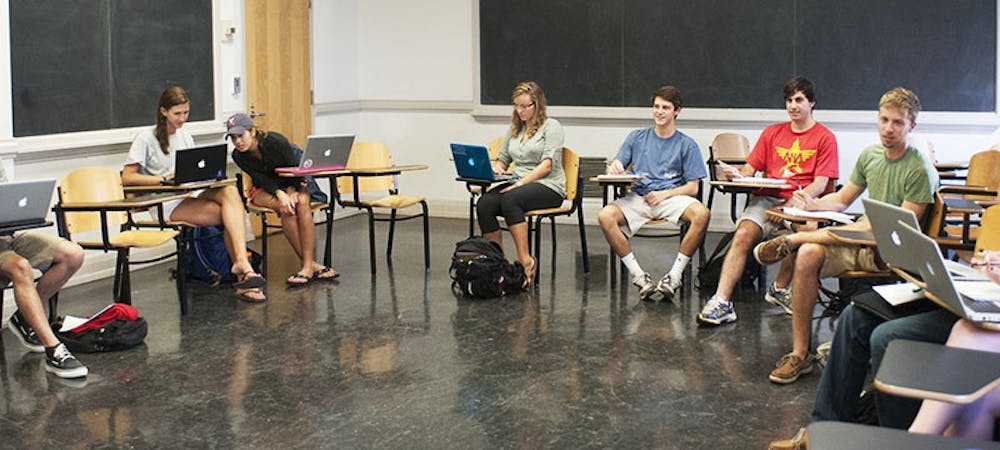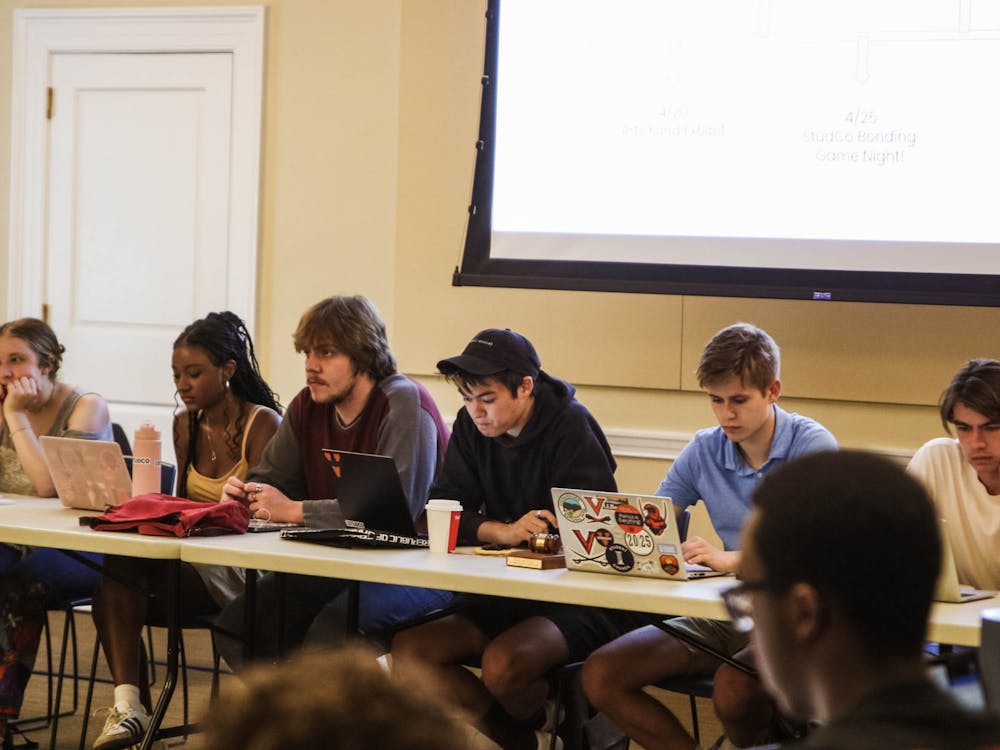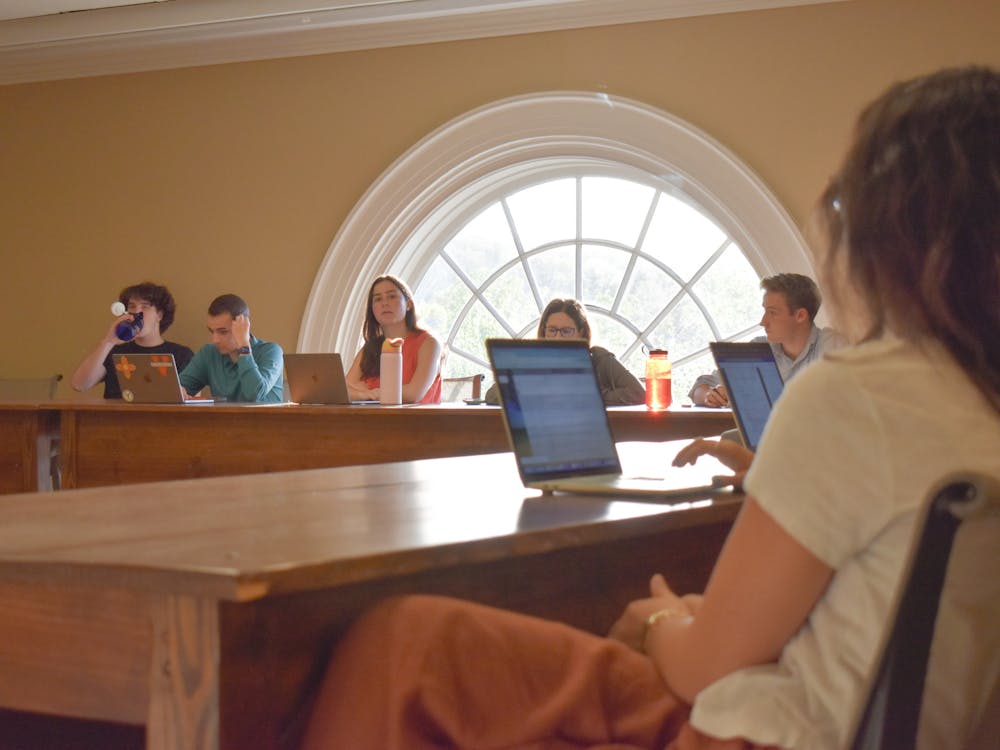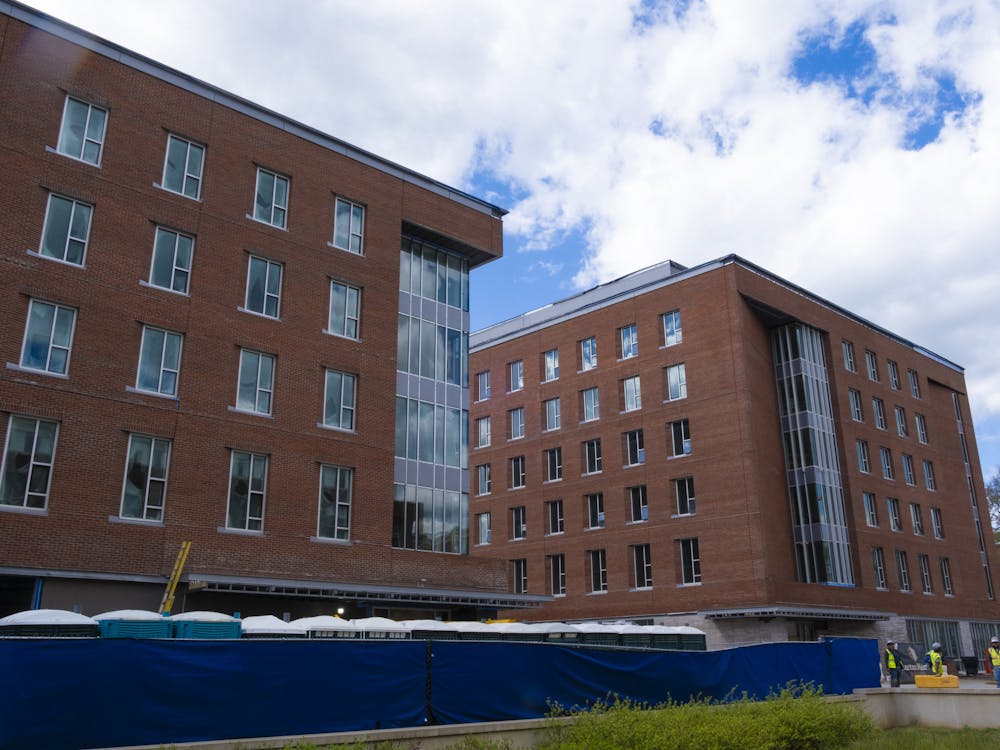Next fall, students have the opportunity to take any of 10 seminars designed and taught by undergraduate students through the Cavalier Education Program. A wide variety of topics will be offered, ranging from “Hindu Mythology: Epics and Myth” to “The Chemistry of Cooking.”
Run by Student Council’s Academic Affairs Committee, CavEd is an initiative which allows students at the University to develop credit/no-credit courses on a topic of their choice. If the courses are approved, students have the opportunity to teach the class to their peers, providing them the opportunity to share their academic passions and knowledge about subjects outside traditional school curriculum.
“All potential CavEd instructors are required to take [a] 1-credit seminar in order to be eligible to propose their own course,” said Michael Palmer, the associate director of the Teaching Resource Center. “The pedagogy seminar introduces students to evidence-based practices in teaching and learning in higher ed. Students develop meaningful learning objectives for their students, effective ways to assess student learning, and a variety of ways to engage their students in the classroom. Students also get practice implementing these ideas through micro-teaching and developing a syllabus.”
Palmer said the syllabus students construct becomes a part of their proposal to the CavEd program if they choose to apply.
“The CavEd seminar was pretty straightforward pedagogy material, but it was useful because over the course of the seminar I picked up some new teaching techniques that I wouldn’t have otherwise used,” third-year College student Michael Breger said in an email.
Breger will teach a class on rock ‘n’ roll music in the fall.
“My class is called ‘School of Rock’ and will present an overview of the history of rock music as well as an investigation of its societal impacts,” he said. “When I studied abroad at Oxford this past summer, one of my history professors there was a music historian and had written about The Clash, which made me realize that as a history major, my scope of investigation doesn’t have to be chained to political history; I can study what I am interested in.”
The student-taught classes appear both on SIS and Lou’s List under the category Interdisciplinary Studies — Student Initiated Courses (INST 1550), and are designated as seminars which range from one to two credits.
As far as homework, Breger said he plans to develop a list of listening assignments, using mixtapes distributed via Spotify or Dropbox, in addition to short writing assignments. Throughout the class, they will also be assigned to watch relevant movies, such as Pink Floyd’s “The Wall,” The Who’s “Tommy,” “This is Spinal Tap” or “Tenacious D and the Pick of Destiny.”
Third-year College student Blake Calhoun, also participating in CavEd, will teach a class titled
“Were We Really Born This Way?” She said the class covers performing gender and queer sexuality.
“My class relies on personal reflection and real-world applications,” she said. “I’ve found that I don’t enjoy classes that are too theoretical in base, so I’ve made a concerted effort to ensure my class is grounded.”
She said she hopes students taking the class will learn how to adopt a sensibility that is considerate of all genders, challenge each other’s viewpoints in a productive manner and recognize the roles gender and sexuality play in their own lives.
The most popular CavEd class for next semester, in terms of student enrollment, is currently “The Chemistry of Cooking,” taught by third-year Commerce student Kevin Nguyen and third-year College student Lani Galloway.
Nguyen has an extensive background with cooking and currently teaches free classes for students at the International Center, while Galloway has taught chemistry and worked as a peer TA.
The class will meet twice a week — first in a lecture format for the class’ chemistry portion, and then in a lab setting for cooking in the kitchen.
“We hope to teach a mixture of topics that will help students gain more courage in the kitchen, to experiment and improve their basic cooking knowledge as well as [learn] fun facts,” Nguyen said.
Nguyen said he hopes the students will learn the chemical processes behind food, such as why it may rot, while also gaining insight from a variety of guest lecturers, including representatives from a brewery.
Galloway said the course will progress much like a recipe, starting with learning about seasoning and salt, moving to liquids, like oil and melted butter and finishing with glutens, protein and other solids.
“It’s cool how students can take an idea and as long as they put work into it and hash out details they can be a professor,” Galloway said.





